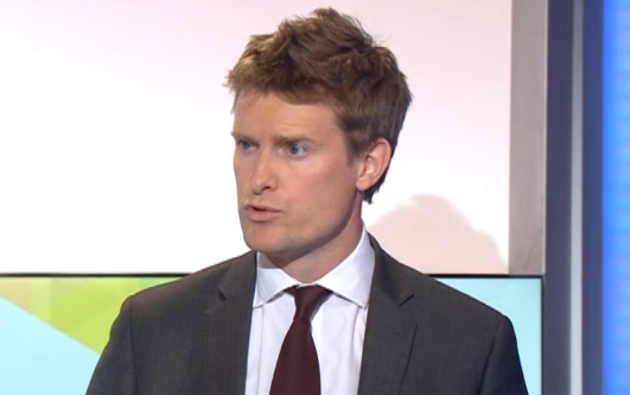Education secretary Nicky Morgan has today unveiled the criteria for what makes a “coasting school” as part of the Government’s drive to intervene in schools where pupils are not achieving their potential.
The new measure will first be used in the summer of 2016 to define schools eligible for intervention if they cannot show a “credible” improvement plan.
Secondary schools that fail to ensure 60 per cent of pupils achieve five A* to C GCSE grades and have a below average proportion of pupils making expected progress between key stage three and four during 2014 and 2015 will be classed as coasting, if they also fail to meet a threshold Progress 8 level in 2016. This threshold level is yet to be defined.
Primary schools with less than 85 per cent of children achieving level 4, over each of three years, and with below average proportions of pupils making expected progress between the ages of seven and eleven will also be defined as coasting.
Based on current performance, the department says the definition, once brought in, will apply to hundreds of schools.
Education Secretary Nicky Morgan said: “For too long a group of coasting schools, many in leafy areas with more advantages than schools in disadvantaged communities, have fallen beneath the radar.
“I’m unapologetic about shining a spotlight on complacency and I want the message to go out loud and clear, that education isn’t simply about pushing children over an artificial borderline, but instead about stretching every pupil to unlock their potential and give them the opportunity to get on in life.
“I know that schools and teachers will rise to the challenge, and the extra support we’ll offer to coasting schools will help them do just that.”
The new Progress 8 measures, which captures pupil progress, will become a central school performance measure from 2016. By 2018, the definition of coasting school will be based purely on progress data.
The plans are an inadequate response to the scale of the challenge we face in securing for every child the education that they deserve
Ms Morgan has previously said that schools defined as ‘coasting’ will be required to draw up an improvement plan.
The government’s eight regional school commissioners will then decide if the plan is “credible”. If it isn’t, the school will be turned into an academy.
Ms Morgan says this will help hundreds of schools that previously “fell beneath the radar” and focused on getting lots of pupils over a C/D borderline or had high achieving intakes but low progress.
Shadow education secretary Tristam Hunt said: “No parent wants their child to be schooled in an inadequate, failing or coasting school.

“But these plans mean that it is likely that underperforming schools will simply pass from one poor provider to another, without the measures required to turn-around sub-standard school leadership and poor classroom teaching.
“The plans are an inadequate response to the scale of the challenge we face in securing for every child the education that they deserve.”
And Kevin Courtney, deputy general secretary of the National Union of Teachers, said: “Very many good secondary and primary schools – as defined by Ofsted, and as defined by parents – will now be classified as coasting.
“Schools are already under enormous pressure to placate the whims of Government and Ofsted. Today’s arbitrary target will only serve to sharpen teaching to the test and a concentration on borderline students.”


Coasting schools defined. It’s the most ridiculous definition you can imagine. Surely someone has made a mistake.
Consider this. Schools with lower attainment rates are already under scrutiny. They are under constant threat of being classed as a failing school, even if their cohort is relatively weak. Coasting is not a definition you would use for most of these schools – they are working incredibly hard to ensure that they can meet targets which, for their cohort, are incredibly difficult to achieve.
When I heard that the government were going to go after coasting schools I was pleased. Finally, schools with good cohorts which can hit the attainment targets automatically because clever children do well in exams – no surprise there – would apparently be challenged. Getting 70% would in itself not be enough, I thought, student progress would have to be good, I thought, Grammar Schools would finally have a measure against which they may not come out well, I thought. I was wrong! Instead of looking for coasting schools in the category of schools which appear to be doing well because of relatively high attainment figures, despite students making relatively poor progress, the government has done the opposite. No Grammar School can be considered coasting because to be coasting your school will have achieved LESS than 60% including English & maths. Surely there has been a misprint and they should be looking only at schools with MORE than 60%. If a school achieves low attainment and three years of poor progress they already have a name for them, which they use regularly – failing, not coasting. Coasting schools are schools which have good students on intake and don’t stretch them enough. There is no jeopardy as the students will still do well. Coasting was a word that would fit such schools but, instead, the government has decided to rule them out of being classed as coasting, at least in the initial phase.
I really don’t see the point of going after the same schools that are already struggling to make the attainment targets. This is a wasted opportunity. And anyway, weren’t we supposed to be moving away from attainment measures. Wasn’t it all supposed to be about progress? Apparently not!
Clearly this is not written by “angry from Tunbridge Wells” I’m sure they are very happy with this policy in the leafy suburbs.